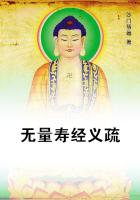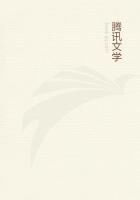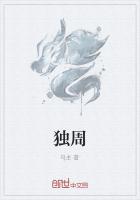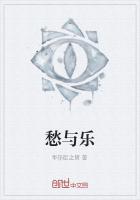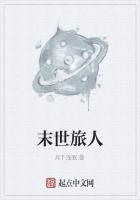(27) The nouns are of two numbers, the singular and plural, and a few have a dual number. The genders are three, the Masculine, the Feminine and the Neuter. There are twelve plural terminations of nouns, of which the most common is au. Some substantives are what the grammarians call aggregate plurals, (28) "which are not used in the plural without the addition of diminutive terminations, for example adar, birds, aderyn, a bird; gwenyn, bees, gwenynen, a single bee." There are different kinds of adjectives; some have a plural, some have none; some have a feminine form, others have not;the most common plural termination is ion. It is said by some that the verb has properly no present tense, the future being used instead. The verbs present many difficulties, and there are many defective and irregular ones. In the irregularities of its verbs the Welsh language very much resembles the Irish.
The numerals require some particular notice: forty, sixty and eighty are expressed by deugain, trigain, and pedwarugain, literally, two twenties, three twenties, and four twenties; whilst fifty, seventy, and ninety are expressed by words corresponding with ten after two twenties, ten after three twenties, and ten after four twenties. Whether the Welsh had ever a less clumsy way of expressing the above numbers is unknown - something similar is observable in French, and the same practice prevails in the modern Gaelic; in the ancient Gaelic, however, there are such numerals as ceathrachad, seasgad, and naochad, which correspond with quadraginta, ***aginta, and nonaginta. The numerals dau, tri, and pedwar, or two, three, and four, have feminine forms, becoming when preceding feminine nouns, dwy, tair, and pedair. In Gaelic no numeral has a feminine form; certain numerals, however, have an influence over nouns which others have not, and before cead, a hundred, and mile, a thousand, do, two, is changed into da, for it is not customary to say do chead, two hundred, and do mhile, two thousand, but da chead and da mhile. (29) With respect to pedwar, the Welsh for four, I have to observe that it bears no similitude to the word for the same number in Gaelic; the word for four in Gaelic is ceathair, and the difference between ceathair and pedwar is great indeed. Ceathair is what may be called a Sanscritic numeral; and it is pleasant to trace it in various shapes, through various languages, up to the grand speech of India: Irish, ceathair; Latin, quatuor; Greek, tessares; Russian, cheturi;Persian, chahar; Sanscrit, chatur. As to pedwar, it bears some resemblance to the English four, the German vier, is almost identical with the Wallachian patrou, and is very much like the Homeric word [Greek text which cannot be reproduced], but beyond Wallachia and Greece we find nothing like it, bearing the same meaning, though it is right to mention that the Sanscrit word pada signifies a QUARTER, as well as a foot. It is curious that the Irish word for five, cuig, is in like manner quite as perplexing as the Welsh word for four. The Irish word for five is not a Sanscritic word, pump, the Welsh word for five, is. Pantschan is the Sanscrit word for five, and pump is linked to pantschan by the AEolick pempe, the Greek pente and pemptos, the Russian piat and the Persian Pantsch; but what is cuig connected with? Why it is connected with the Latin quinque, and perhaps with the Arabic khamsa; but higher up than Arabia we find nothing like it; or if one thinks one recognises it, it is under such a disguise that one is rather timorous about swearing to it - and now nothing more on the subject of numerals.
I have said that the Welsh is exceedingly copious. Its copiousness, however, does not proceed, like that of the English, from borrowing from other languages. It has certainly words in common with other tongues, but no tongue, at any rate in Europe, can prove that it has a better claim than the Welsh to any word which it has in common with that language. No language has a better supply of ****** words for the narration of events than the Welsh, and ****** words are the proper garb of narration; and no language abounds more with terms calculated to express the abstrusest ideas of the meta-physician. Whoever doubts its capability for the purpose of narration, let him peruse the Welsh Historical Triads, in which are told the most remarkable events which befell the early Cumry; and whosoever doubts its power for the purpose of abstruse reasoning, let him study a work called Rhetorick, by Master William Salisbury, written about the year 1570, and I think he will admit that there is no hyperbole, or, as a Welshman would call it, GORWIREB, in what I have said with respect to the capabilities of the Welsh language.
As to its sounds - I have to observe that at the will of a master it can be sublimely sonorous, terribly sharp, diabolically guttural and sibilant, and sweet and harmonious to a remarkable degree.
What more sublimely sonorous than certain hymns of Taliesin; more sharp and clashing than certain lines of Gwalchmai and Dafydd Benfras, describing battles; more diabolically grating than the Drunkard's Choke-pear by Rhys Goch, and more sweet than the lines of poor Gronwy Owen to the Muse? Ah, those lines of his to the Muse are sweeter even than the verses of Horace, of which they profess to be an imitation. What lines in Horace's ode can vie in sweetness with "Tydi roit a diwair wen Lais eos i lysowen!""Thou couldst endow, with thy dear smile, With voice of lark the lizard vile!"Eos signifies a nightingale, and Lysowen an eel. Perhaps in no language but the Welsh, could an eel be mentioned in lofty poetry:
Lysowen is perfect music.
Having stated that there are Welsh and Sanscrit words which correspond, more or less, in sound and meaning, I here place side by side a small number of such words, in order that the reader may compare them.
WELSH SANSCRIT

